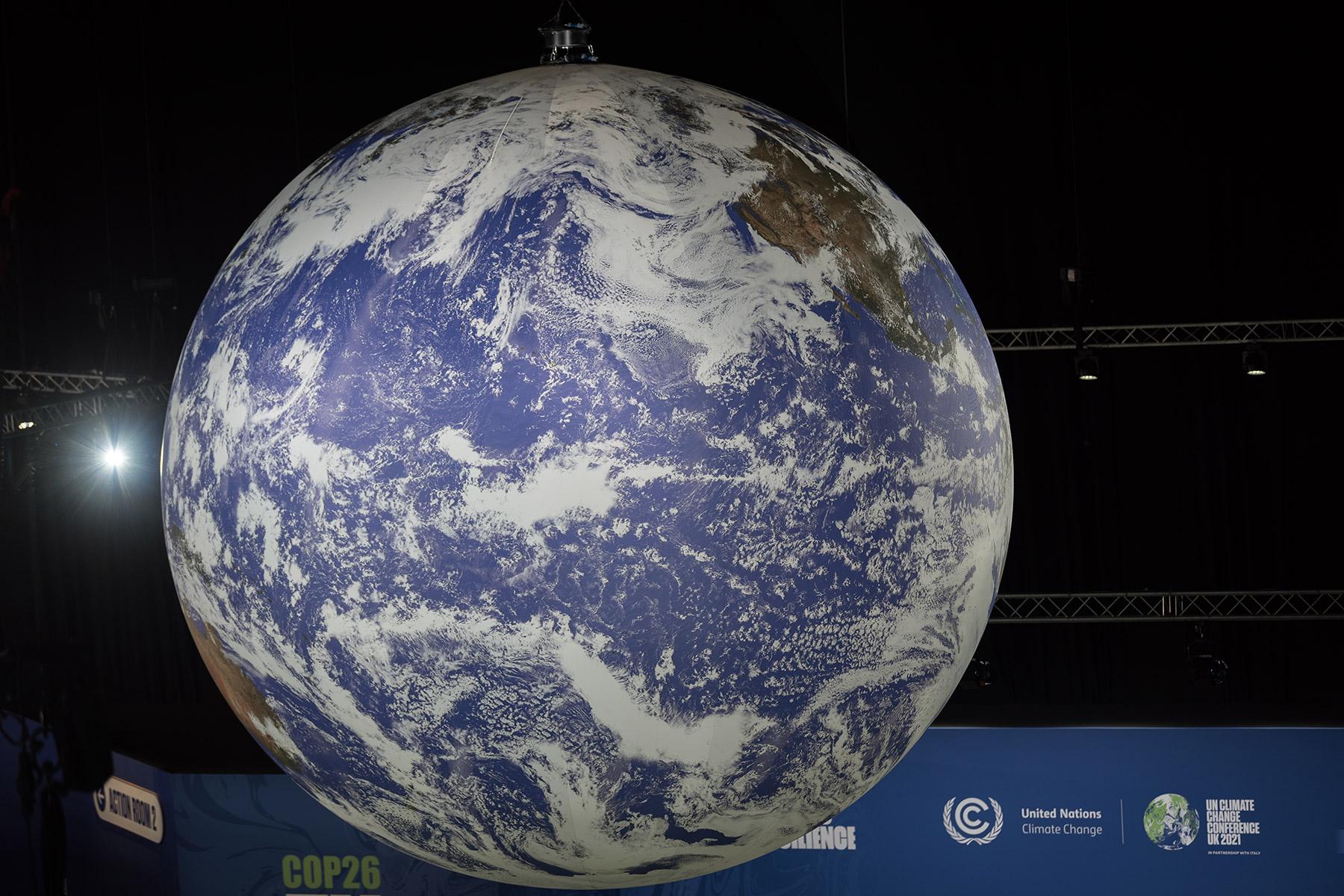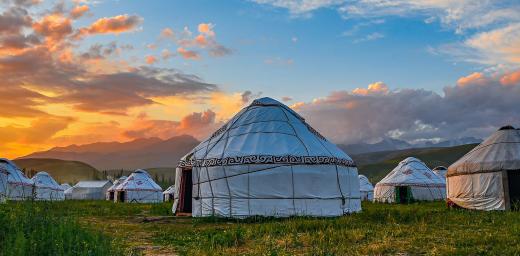Season of Creation theme: Listen to unheard voices

A large globe hanging from the ceiling in the Action Zone of COP26 in Glasgow last November as world leaders gathered to negotiate a response to climate crisis. Photo: LWF/Albin Hillert
Burning bush logo calls Christians to turn holy anger into action and advocacy to safeguard our common home
(LWI) - ‘Listen to the Voice of Creation’ is the theme for the 2022 Season of Creation which is marked by the majority of Christian churches each year from 1 September to 4 October, the feast day of St Francis of Assisi. Using the image of the burning bush as its logo, the ecumenical organizing committee is underlining the need to move “from anxiety to action” and from “a theology of plunder to a theology of wonder.”
Moderating a recent panel discussion to unpack the theme, Rev. Dr Chad Rimmer, chair of the Season of Creation steering committee and Program Executive for Identity, Communion and Formation at the Lutheran World Federation (LWF), spoke of the many voices that are muted and not heard in the discussions around climate change and earth care. This includes the voices of those who suffer most from the impact of global warming, “the voices of those who hold generational wisdom about how to live gratefully within the limits of the land,” he said.
Our different Christian traditions, Rimmer continued, offer a rich and diverse range of resources “to help us recover our capacity to hear the voice of creation”. The theological tradition of the book of creation, he said, “runs like a golden thread” through the psalms and the writings of the early church fathers, to Martin Luther who said “God has written [the gospel] not only in books, but also in trees and other creatures.”
Book of scripture and book of creation
“The book of creation and the book of scripture are meant to be ‘read’ side by side,” Rimmer said, not blurring the lines between reason and revelation, but realizing that creation was the first stage of God’s revelation which culminated in Christ’s coming into the world. Contemplating these two books together, he added, help us understand “who we are, where we are and how we are called to live in right relationships with God and our co-creatures.”
Reflecting on the development of the theology of creation over the centuries, Rev. Rachel Mash, environmental coordinator of the Anglican Church of Southern Africa, spoke of the way a growing conflict between science and religion led to a loss of spiritual insights and a focus on individual salvation. “We moved from a theology of wonder to a theology of plunder,” she said, with “nature no longer alive or permeated with spiritual presence” but rather “objectified and seen as matter to be used for human need or greed.”
We must listen to the cry of the earth and the cry of the poor and keep burning with holy anger.
Fr Joshtrom Kureethadam, coordinator of the Ecology and Creation section of the Vatican’s dicastery for Integral Human Development, highlighted the need to rediscover creation “as a temple, as a holy place, as permeated by divine presence and all our liturgy and spirituality has to begin with that.” Recalling the anger of Jesus in the temple which had been turned into “a den of thieves, a marketplace,” he said “we are desecrating God’s temple” today. Like Jesus, he insisted, “we must listen to the cry of the earth and the cry of the poor and keep burning with holy anger,” turning that anger into prophetic action.
Isabell Retamoza, a young Lutheran Cherokee woman working for the National Association of Women Lawyers in the United States, described the way she has learnt from listening to stories of indigenous women who “remind us of our reciprocity with the earth and collective belonging that is rooted in equality.” She spoke of the need to reject the anthropocentrism of the “western settler colonial culture” and “return to our ancestral understanding of interconnectedness and belonging.”
The resources for this year’s Season of Creation will be accompanied by a letter from the different church leaders who take part in the celebration. The material, available soon at www.seasonofcreation.org and on the websites of participating organizations, will include an ecumenical prayer service, a practical action guide and advocacy ideas for safeguarding our common home. “The environmental movement needs people of faith,” Rev. Rachel Mash concluded, “because we bring our hope and our faith, our prayers and our actions.”
LWF/P. Hitchen





